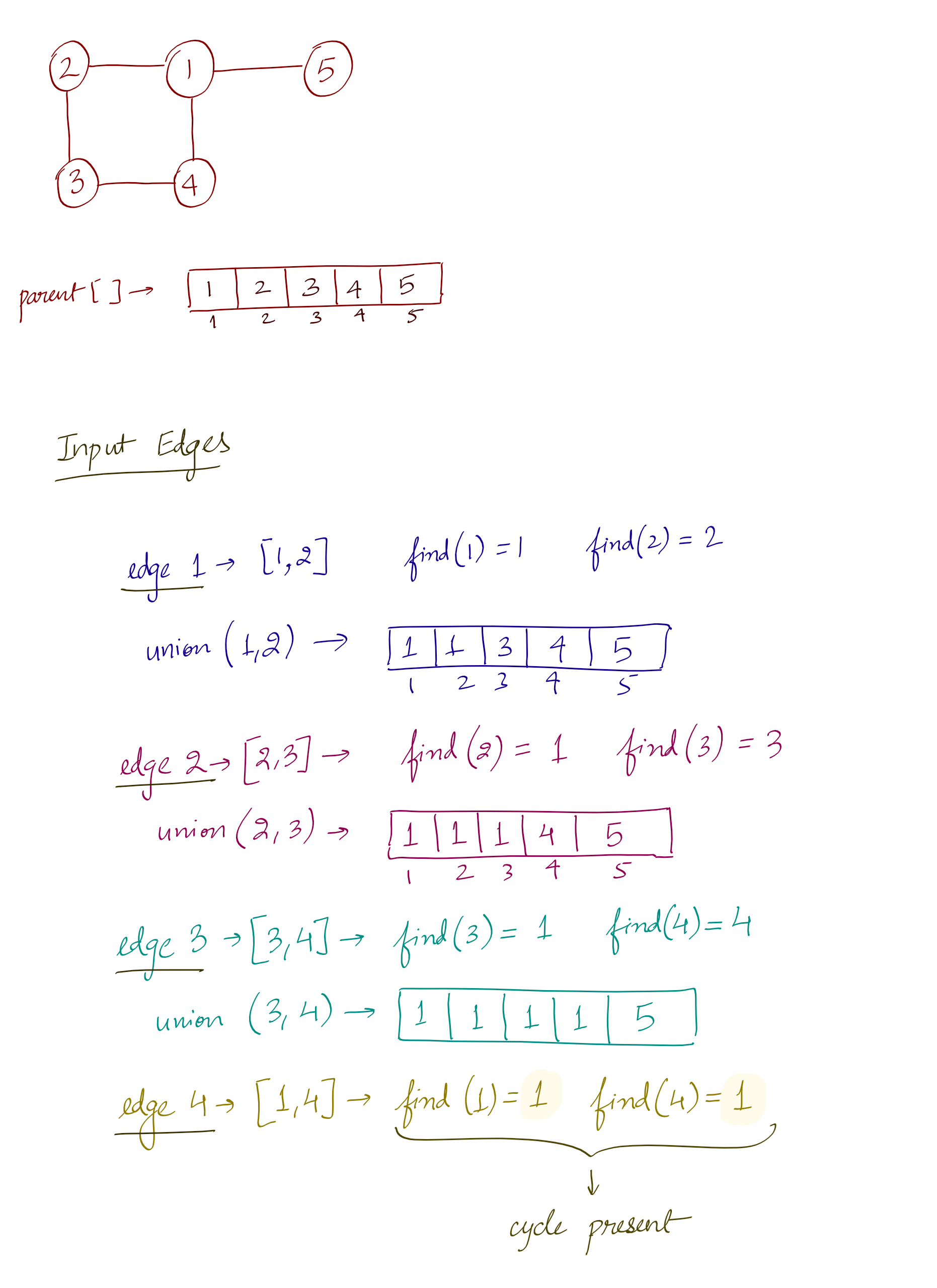Problem Description
In this problem, a tree is an undirected graph that is connected and has no cycles.
You are given a graph that started as a tree with n nodes labeled from 1 to n, with one additional edge added. The added edge has two different vertices chosen from 1 to n, and was not an edge that already existed. The graph is represented as an array edges of length n where edges[i] = [ai, bi] indicates that there is an edge between nodes ai and bi in the graph.
Return an edge that can be removed so that the resulting graph is a tree of n nodes. If there are multiple answers, return the answer that occurs last in the input. leetcode
Solution

find() -> get the “leader” of that set/group
union() -> combine the sets/groups, which means, one of the leaders can be made as a child of another or vise-versa
1
2
3
4
5
6
7
8
9
10
11
12
13
14
15
16
17
18
19
20
21
22
23
24
25
26
27
28
29
30
31
32
33
34
35
36
37
38
39
40
41
42
43
44
class Solution {
public int[] findRedundantConnection(int[][] edges) {
//A tree has (nodes-1) edges. There is one extra edge which is creating the cycle
int n = edges.length;
//Initialize: we will assume that each node's parent is itself
int[] parent = new int[n+1];
for(int i=1; i<parent.length; i++){
parent[i] = i;
}
for(int i=0; i<edges.length; i++){
int a = edges[i][0];
int b = edges[i][1];
if(find(parent, a) == find(parent, b)){
return edges[i];
}else{
union(parent, find(parent, a), find(parent, b));
}
}
return new int[]{};
}
public int find(int[] parent, int n){
if(parent[n] == n) return n;
return find(parent, parent[n]);
}
public void union(int[] parent, int u, int v){
if(u <= v){
parent[v] = u;
}else{
parent[v] = u;
}
}
}
OPTIMIZATION
We can optimize the find(x) method to O(1) -
1
2
3
4
5
6
7
8
9
10
11
12
13
int find(int x, int[] leader){
if(leader[x] == x) return x;
while(leader[x] != x){
x = leader[x];
}
leader[x] = find(leader[x], leader);
return leader[x];
}
